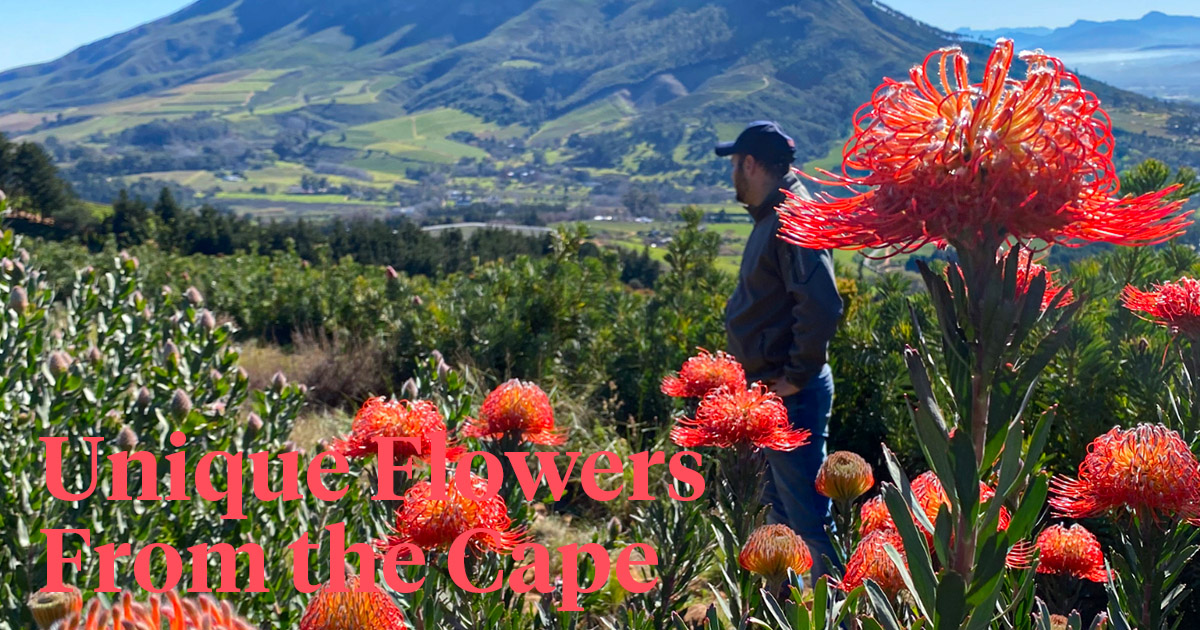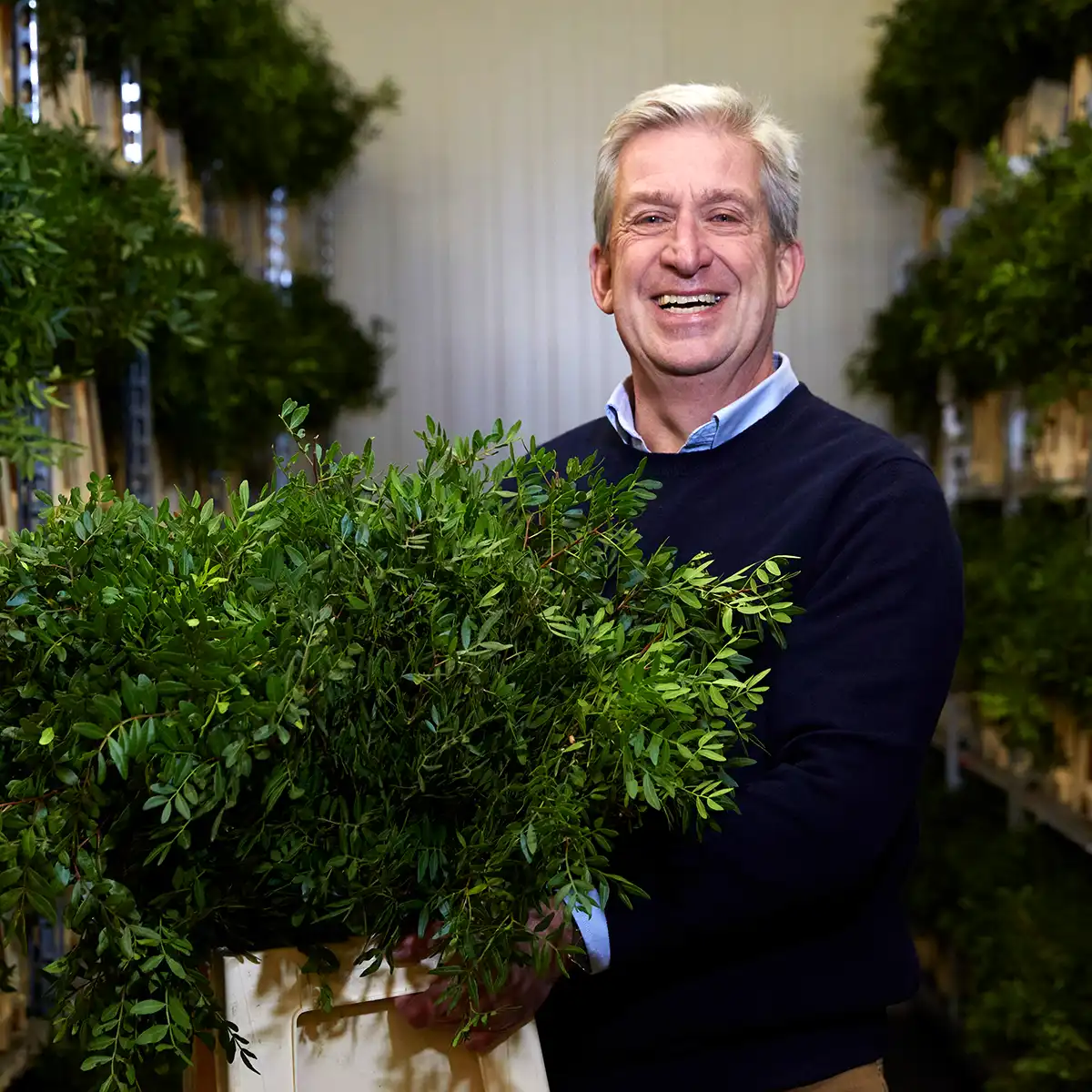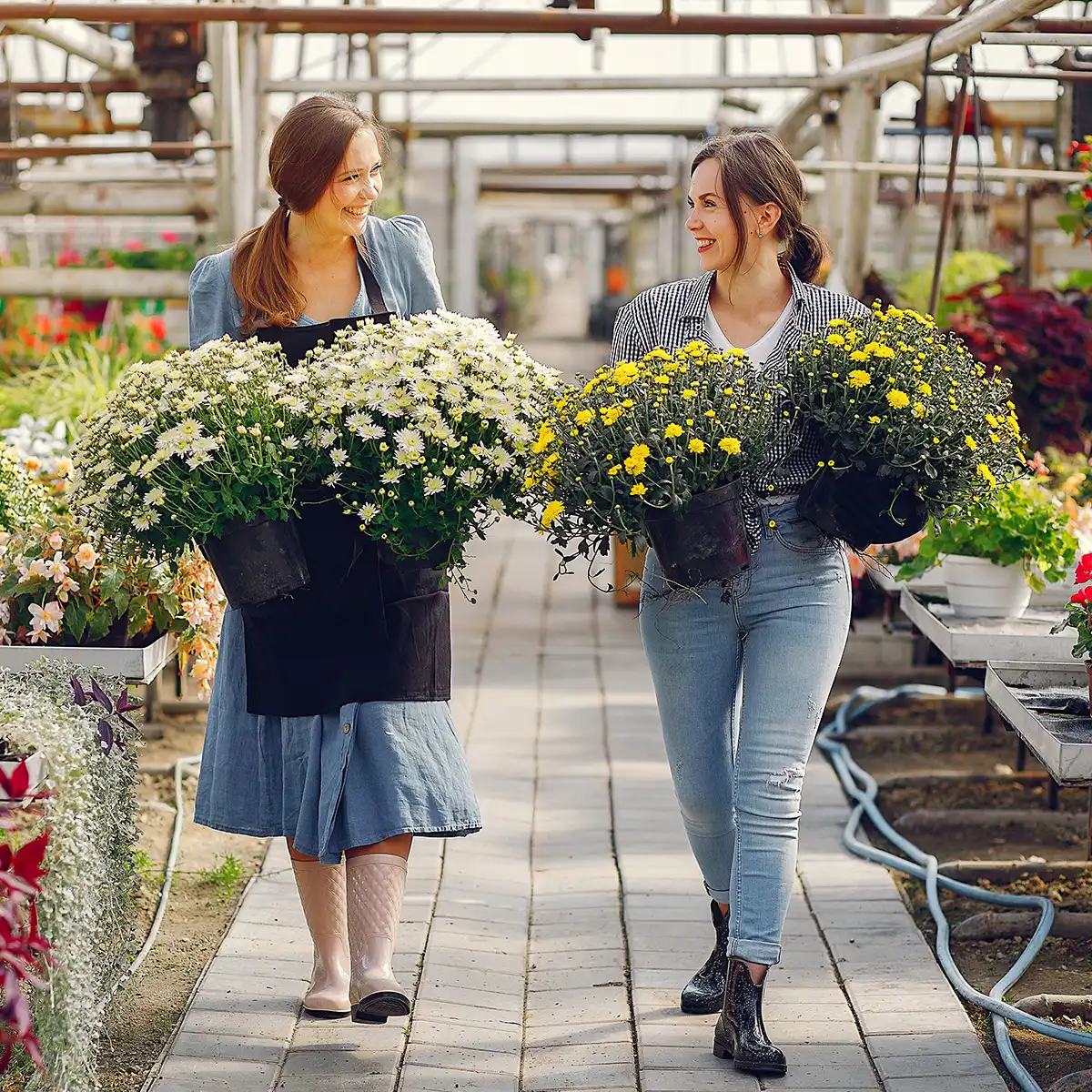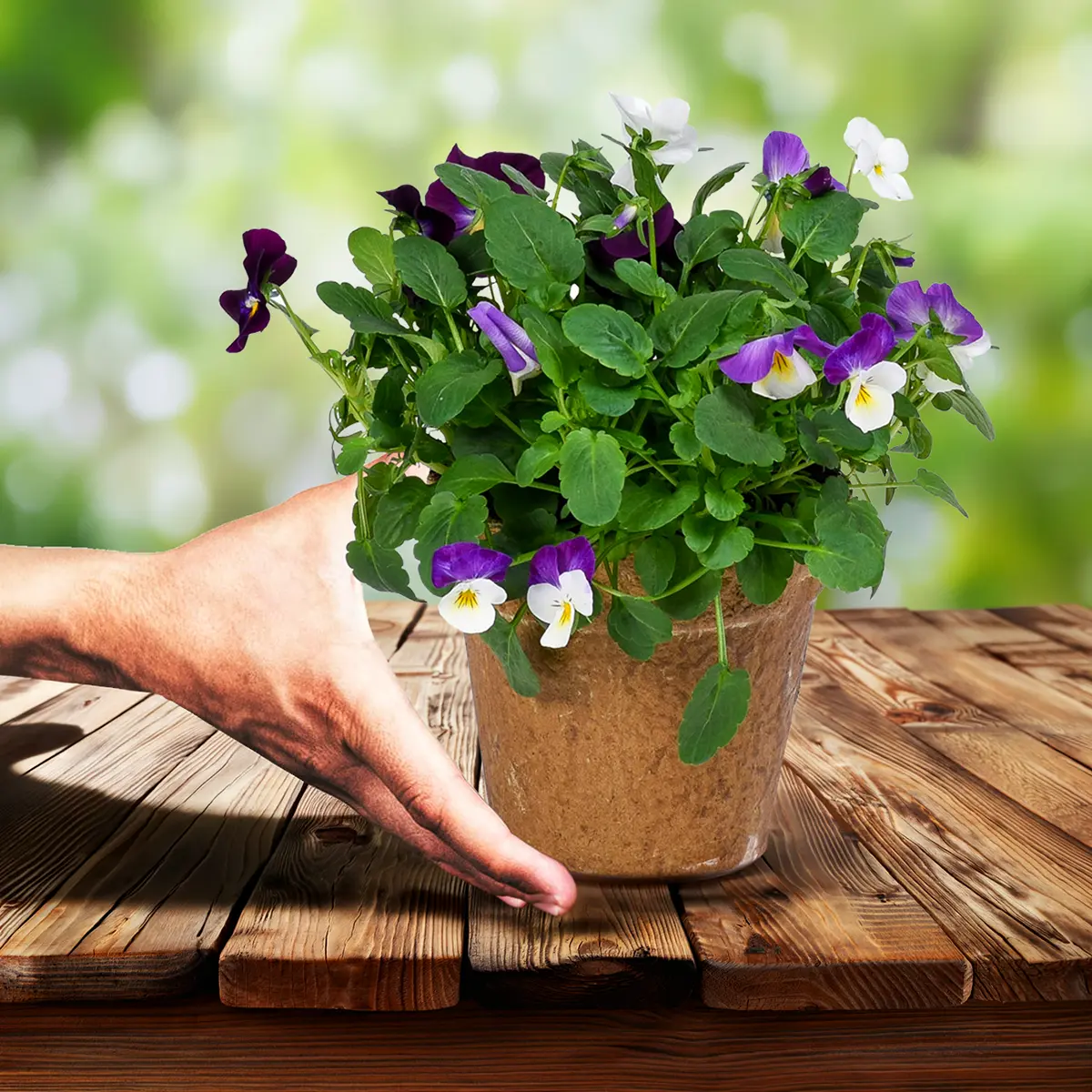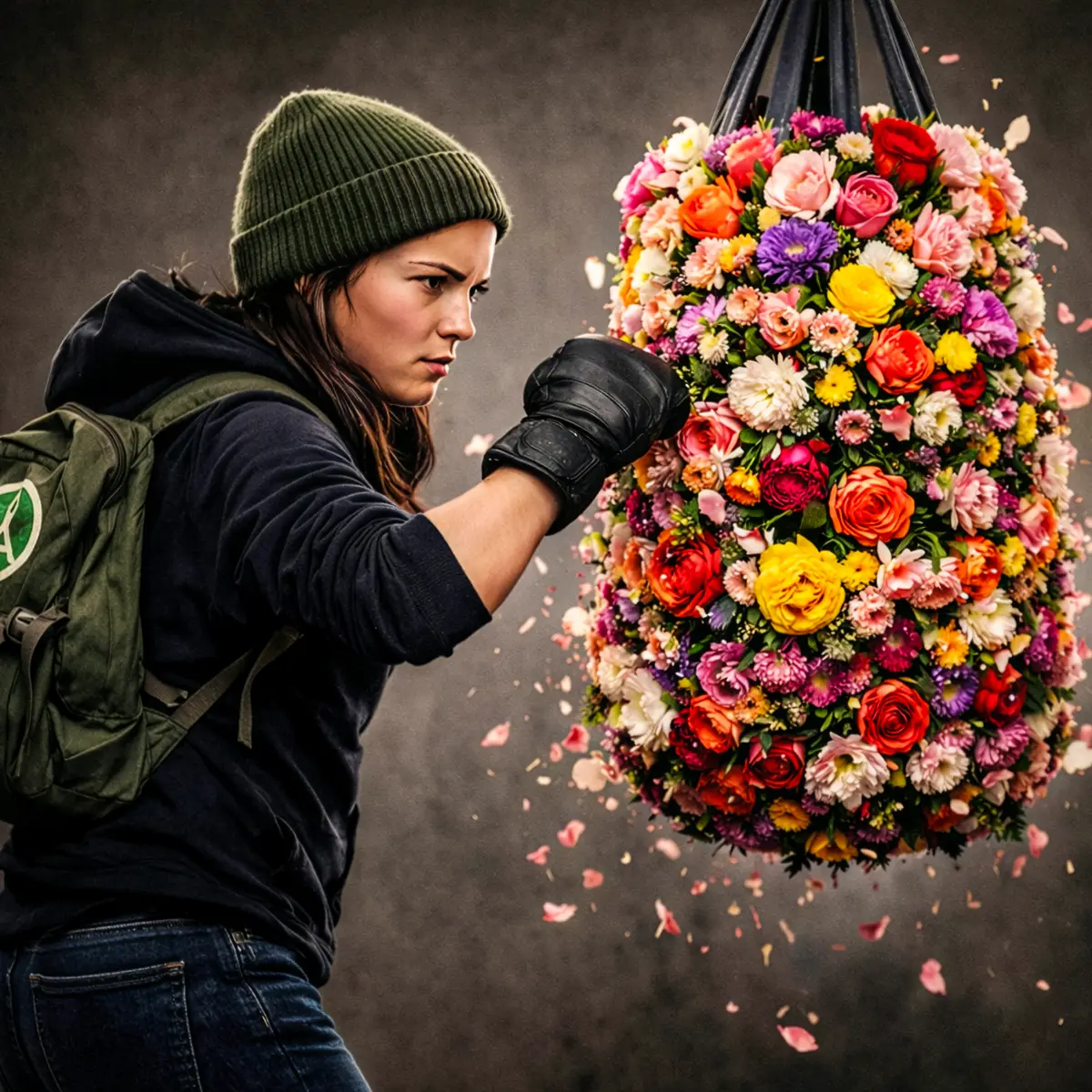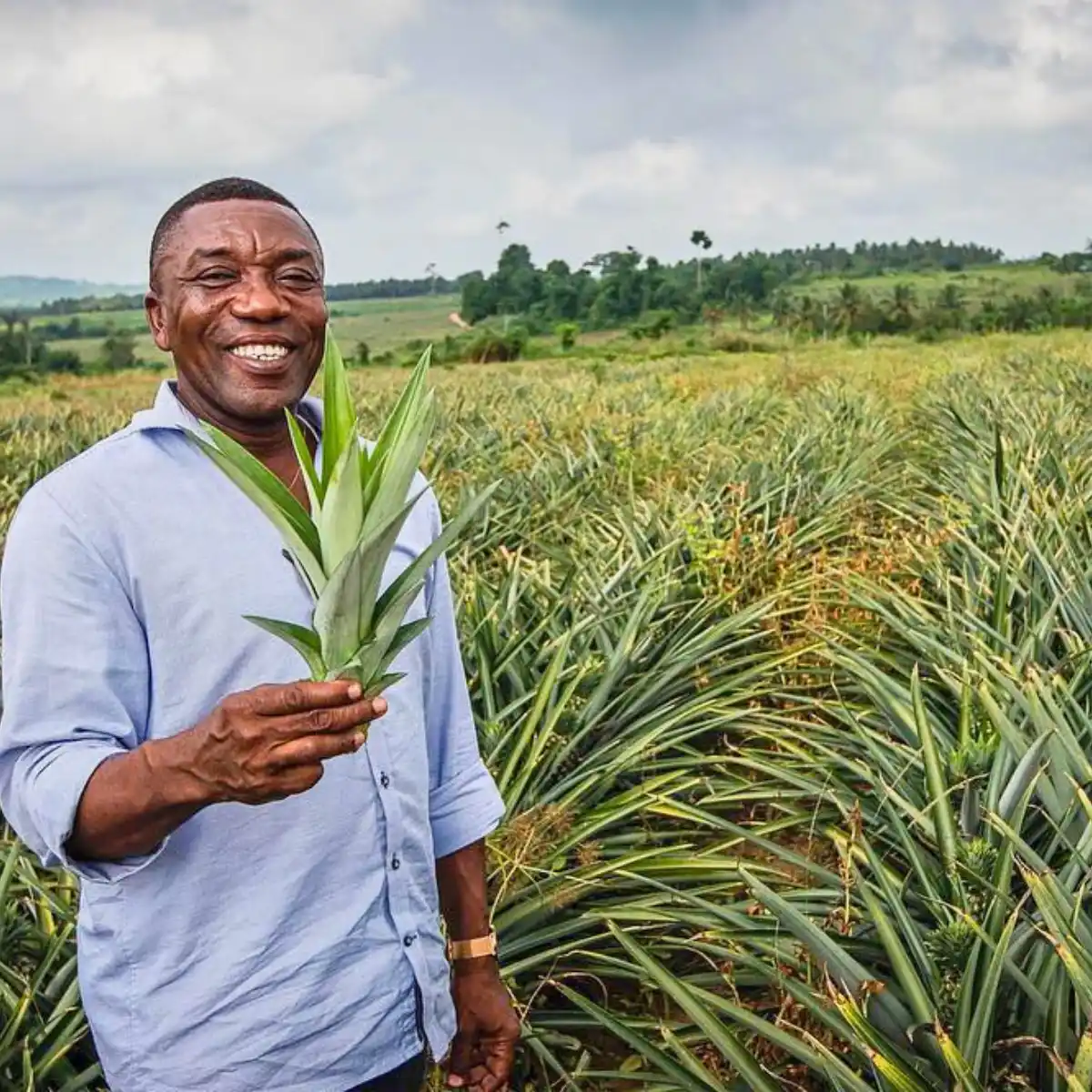Located in South Africa’s Western Cape Province, Calenick Farm is so picturesque in special ways. It hosts different varieties of native South African flora - commonly known as Cape greens of fynbos - which are quite a hit in floral designs and compositions that seek to add a touch of exotic flair. This establishment has managed to tame and nurture some of these varieties and even source more from other farms for supply to markets, especially in Europe, through its commercial outfit, Cape Mountain Flora (CMF).
Bryan Michell, the Managing Director of Cape Mountain Flora, explains that the enterprise sources the best quality and most sought-after floral products from other farms in the country, including proteas, leucospermums, leucadendrons, and other Cape greens, and the efforts, in turn, guarantee the resilience and long-term development of South Africa’s fresh-cut protea and other floral industries. Cape Mountain Flora is signed to Adomex, a specialist in the import and export of varied types of cut and decoration green, through the latter's OrcaExotics label.
Cape Mountain Flora and Its Floral Heritage
Cape Mountain Flora, according to Bryan, was an idea born out of a need to supply markets with these unique exotic flowers. In 1960, Bryan's mother, Pam Michell started the renowned farm through the development and production of a unique protea hybrid named Protea Venus, which was later registered with the plant breeder’s rights in 1995. The flower is a cross between Protea Aristata and Protea Repens and is an incredibly striking and beautiful hybrid.
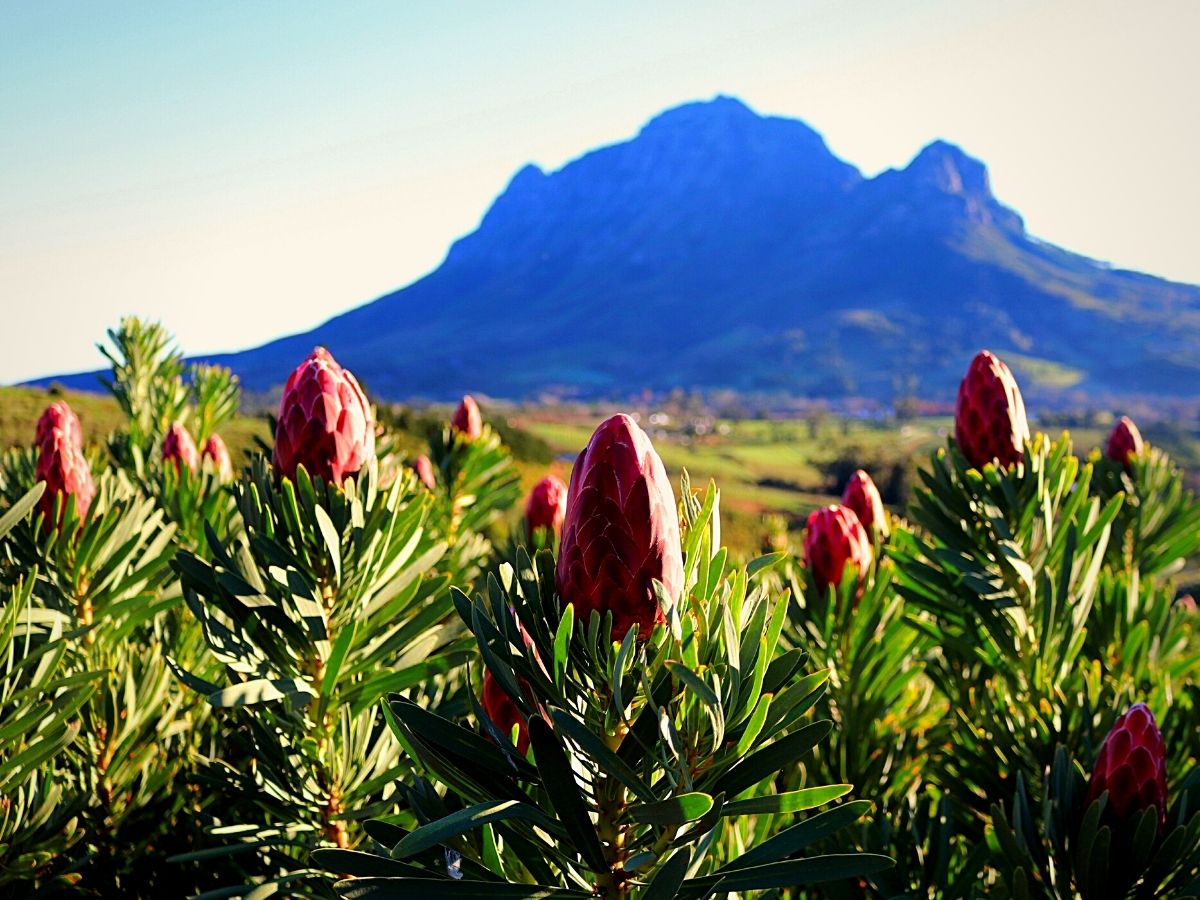
The company now supplies these flowers to Europe - and eventually to other countries - through Adomex. It, also, continues to acquire these flowers from other independent growers, as it collaborates with other partners both in South Africa and around the world. Bryan, who took over the running of the flower company in 1997, has since expanded it into an international and local supplier of these exotic South African floral products.
Bryan Michell:
“I was born on this flower and fruit farm. My mother did most of the farming and focused on growing King Protea (Protea Cynaroides). My parents left the farm in 1997 and I continued with growing and planting new varieties. I mainly focused on Protea Venus; of which my mother was the breeder. We registered (patented) it with Plant Breeders Rights.”
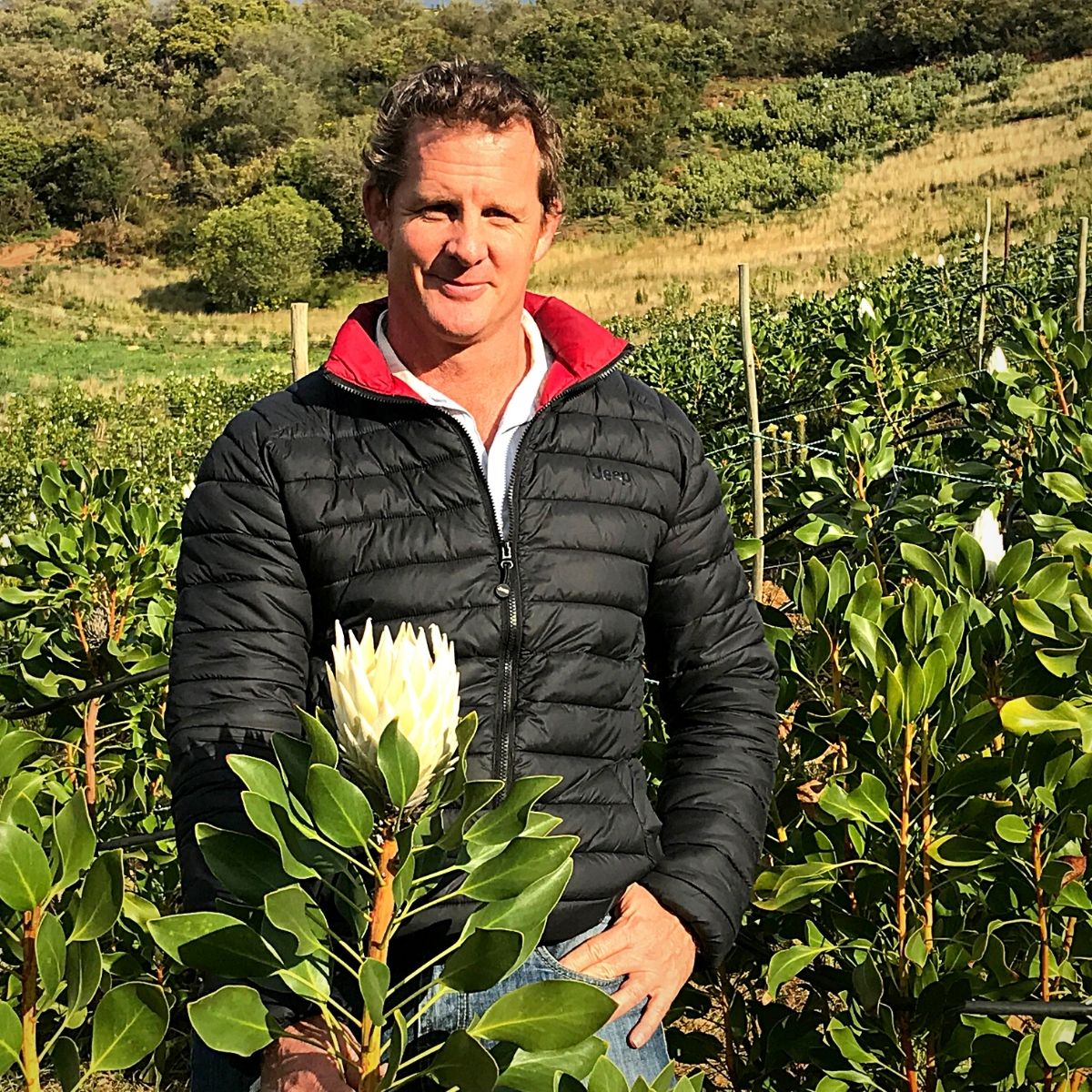
Apart from Protea Venus, Cape Mountain Flora also grows other Cape floral products including Protea Ayoba Arctic Ice, Protea Cynaroides, Protea Nana, Leucadendron Ulka, Leucadendron Jester, Leucospermum Veldfire, Leucospermum Ayoba Mandarin Zest, Leucospermum Soleil and Phylica Pubescens, among others.
Even so, through Adomex's OrcaExotics label, Cape Mountain Flora also delivers a range of Cape greens including Albiflora Green, Berzelia, Brunia Silver, Brunia Red, Platystar, Leucadendron Tortum, Plumosum, Erica, as well as varieties of proteas, leucospermums (a.k.a. nutans), and leucadendrons.
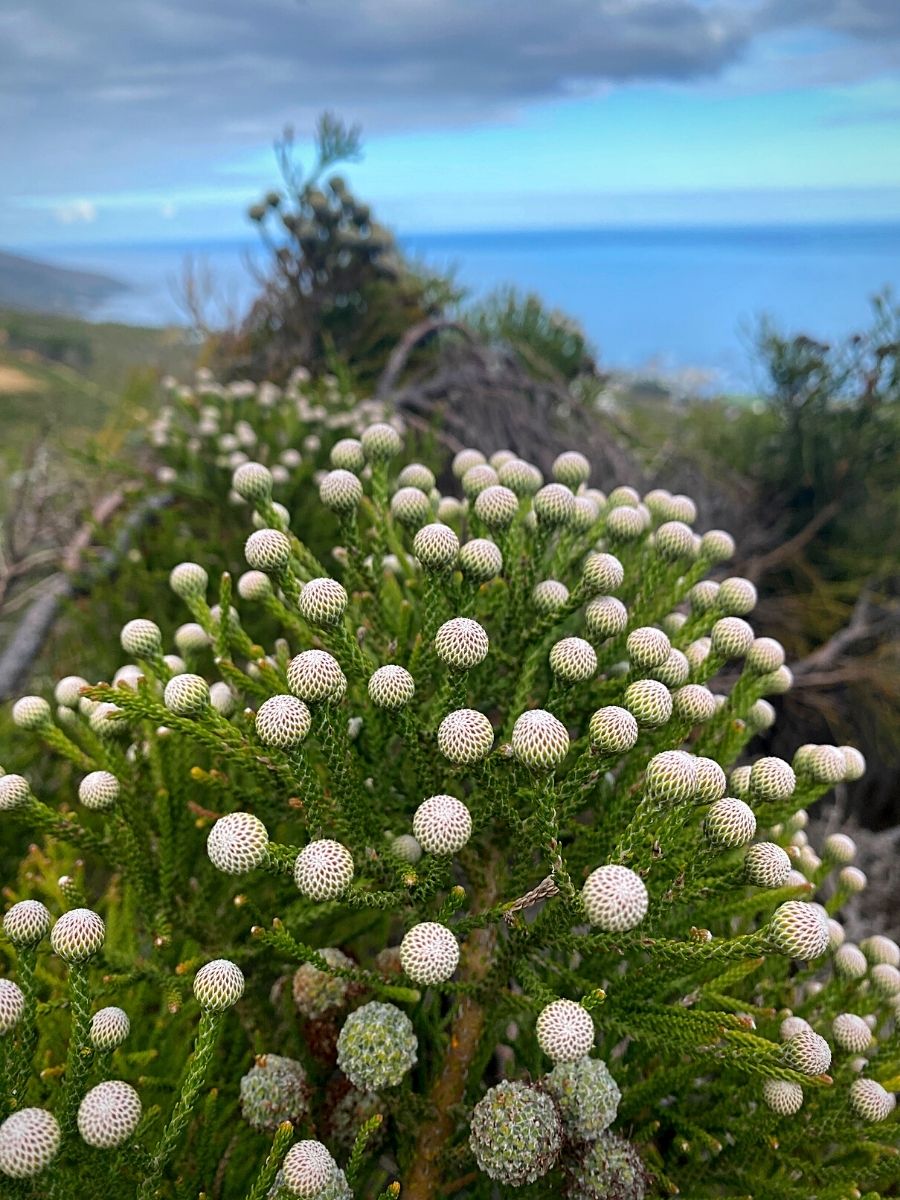
Perfect Qualities for Different Floral Compositions
The different flowers that they supply, according to Bryan, possess different qualities that are ideal for floral compositions for practically all occasions. for instance, Protea Venus is a striking and beautiful hybrid in floral compositions. It has a long stem and a deep red, flower head with silvery tips and strong leaves that make for a long-lasting flower that also holds its color. Other varieties in their catalog, similarly, have remarkable qualities.
Bryan Michell:
"These selected products have a very wide variety of beautiful colors and shapes and can be used in any floral display, design, or bouquet."
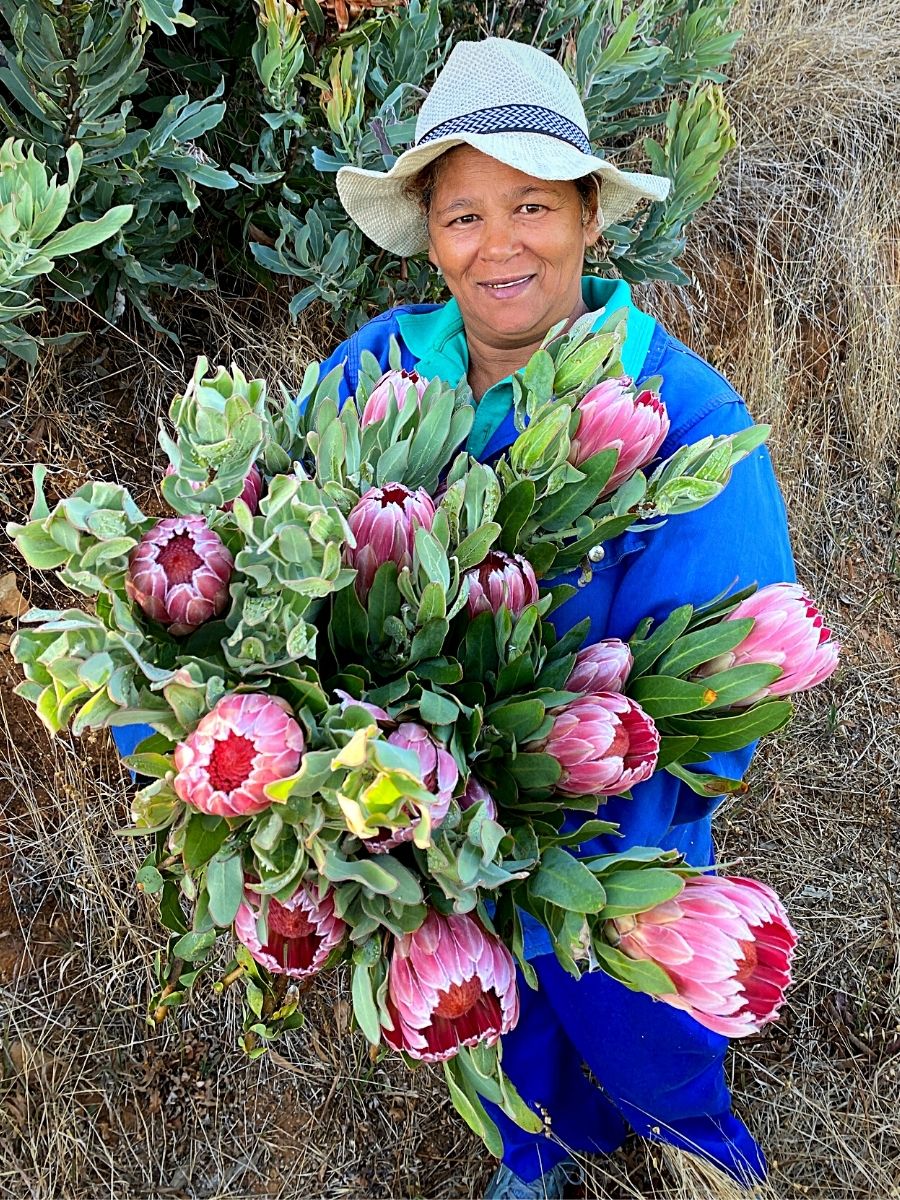
A Partnership That Cultivates a Heritage of Proteas and Other Cape Floras
Cape Mountain Flora's partnership with Adomex, according to Bryan, is one that has been nurtured over the years. Both organizations, according to him, understand each other's needs and requirements, hence the ease with which they have connected and worked together.
This is helped by the fact that the region experiences a Mediterranean climate with cold wet winters and hot dry summers, which are conditions perfect for the thriving of the floral products it supplies to Adomex. Essentially, Cape Mountain Flora's location enables it to comprehensively deliver the flowers required.
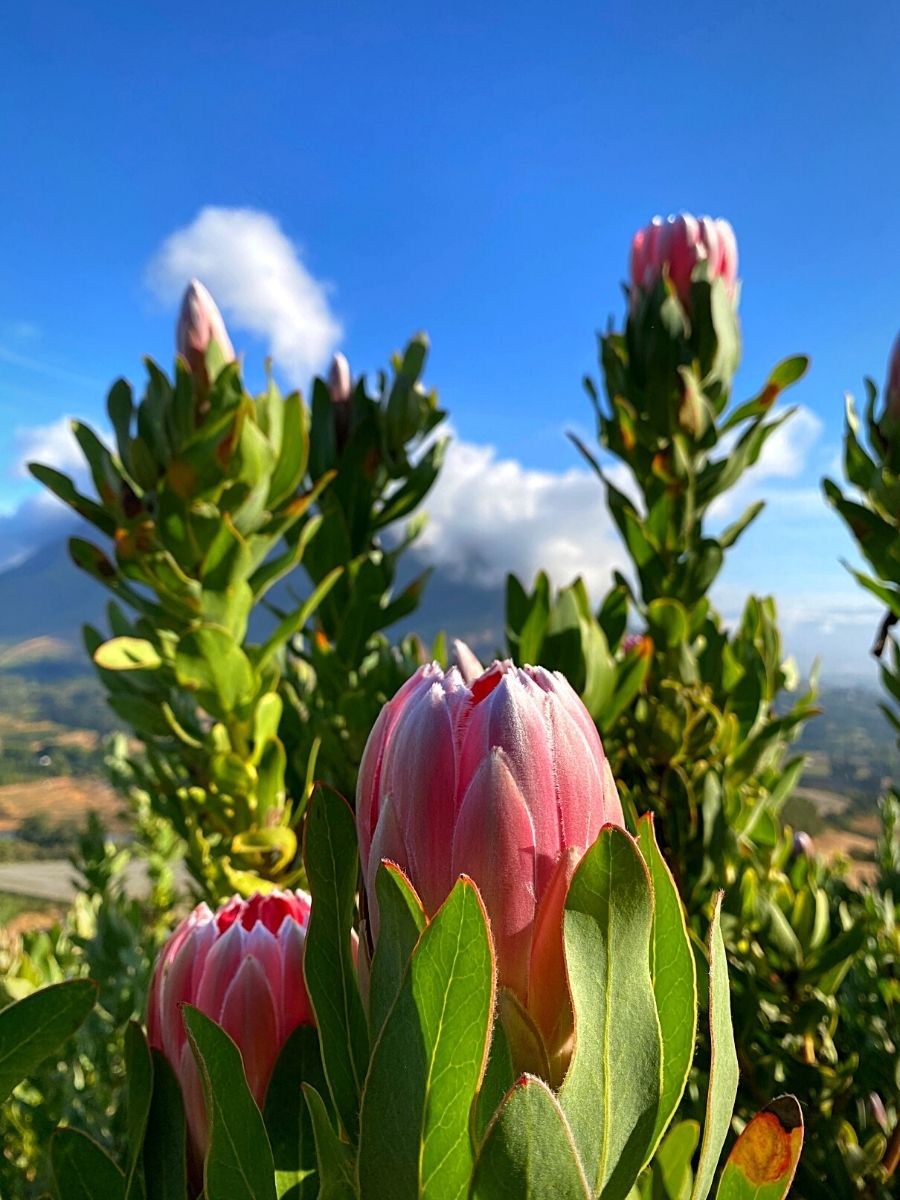
Even so, to increase the varieties that the company offers and ensure sustainability, the company is supplied by eighty different growers around South Africa, all of which serve to ensure that the market remains contented.
Bryan explains:
“Adomex is our oldest customer in the Netherlands, and we have been packing Coral Fern and Typha Leaves in the OrcaGreen box for many years. With the start of Adomex’s new OrcaExotics, we are very proud to be involved and invited to pack and supply this amazing new top-quality brand. We choose only the best growers and pack the best selections for this brand.”
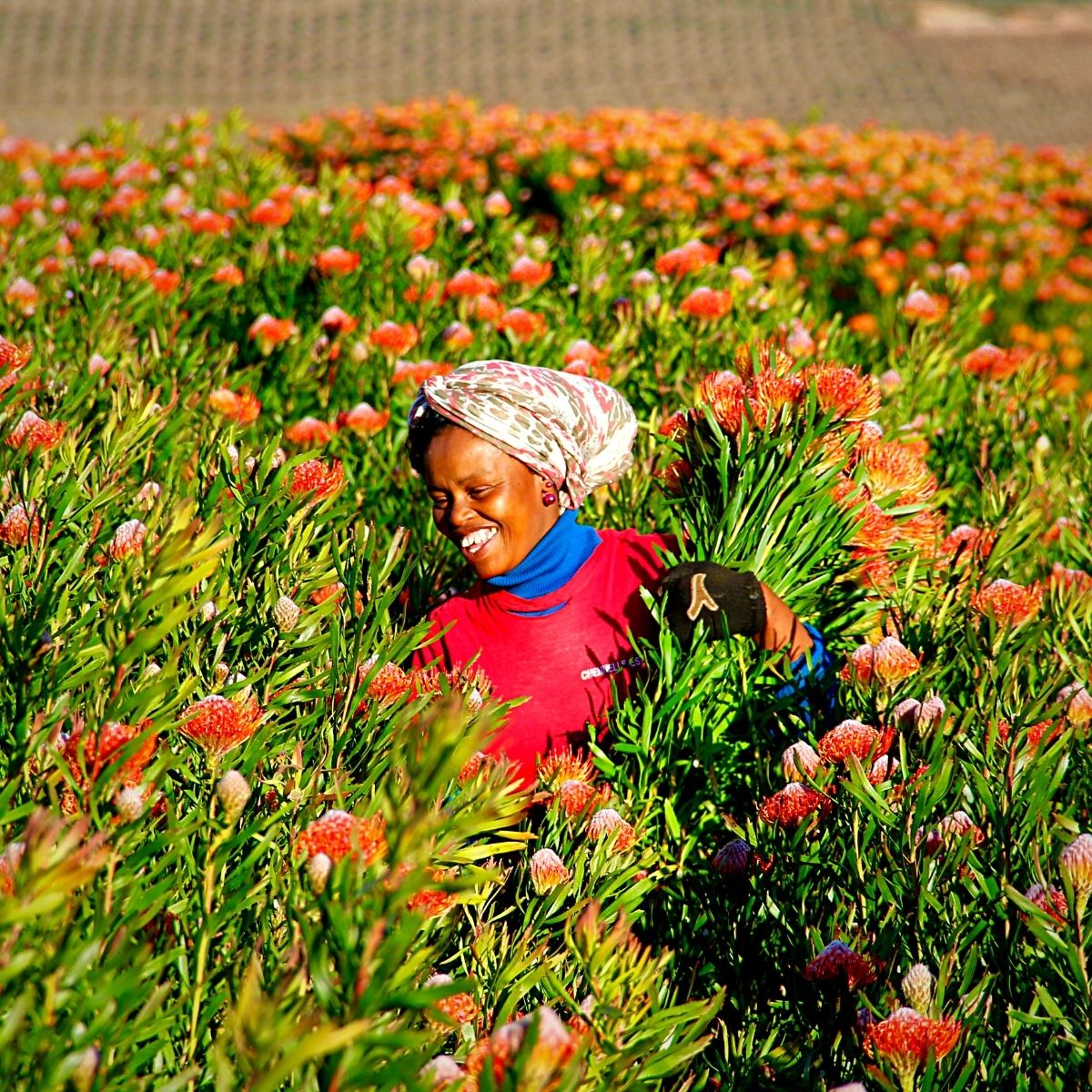
The products that it supplies through the OrcaExotics label, he says, are carefully selected and come in a wide range of varieties with beautiful colors, shapes, and sizes, and can be used in virtually any floral displays, designs, or bouquets.
You can also read more on how you can create a floral arrangement with OrcaGreen.
Bryan:
“2023 was our first season with OrcaExotics which has been very successful. Adomex has very fast become a powerful force in exotics and we are very proud to partner with them. We understand their needs and vision for the OrcaExotics label. This is because ours is a relatonship built and nurtured over the years.”
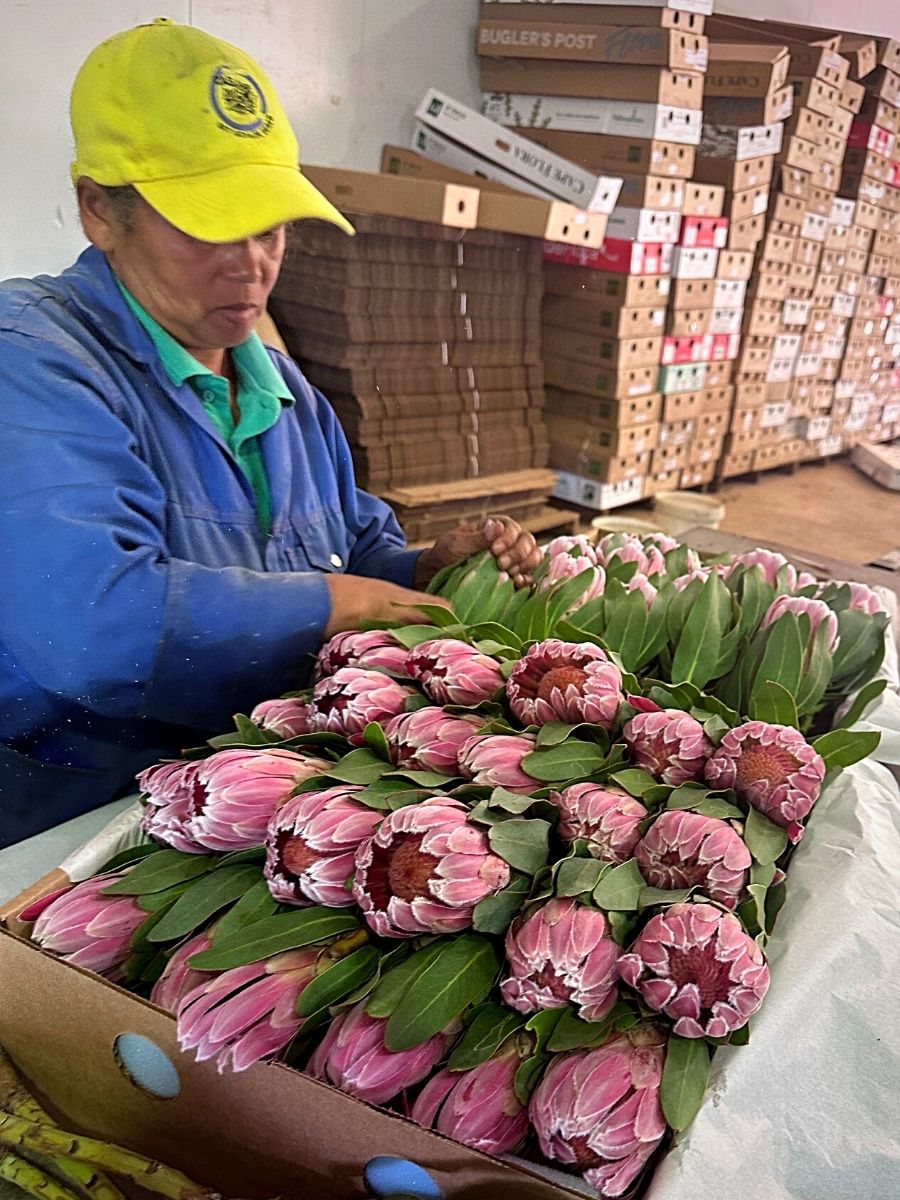
Sustainably Cultivating Exotic Flowers
The Cape Flower Region, stretching from the Cape Peninsula to the Eastern Cape, hosts roughly twenty percent of the world’s flora within its relatively small area. This rich natural heritage includes a diverse range of flora that can hardly be found anywhere else across the world. With approximately 465 different species per 1,000 square kilometers, it is a floral wonderland that needs all the protection it requires.
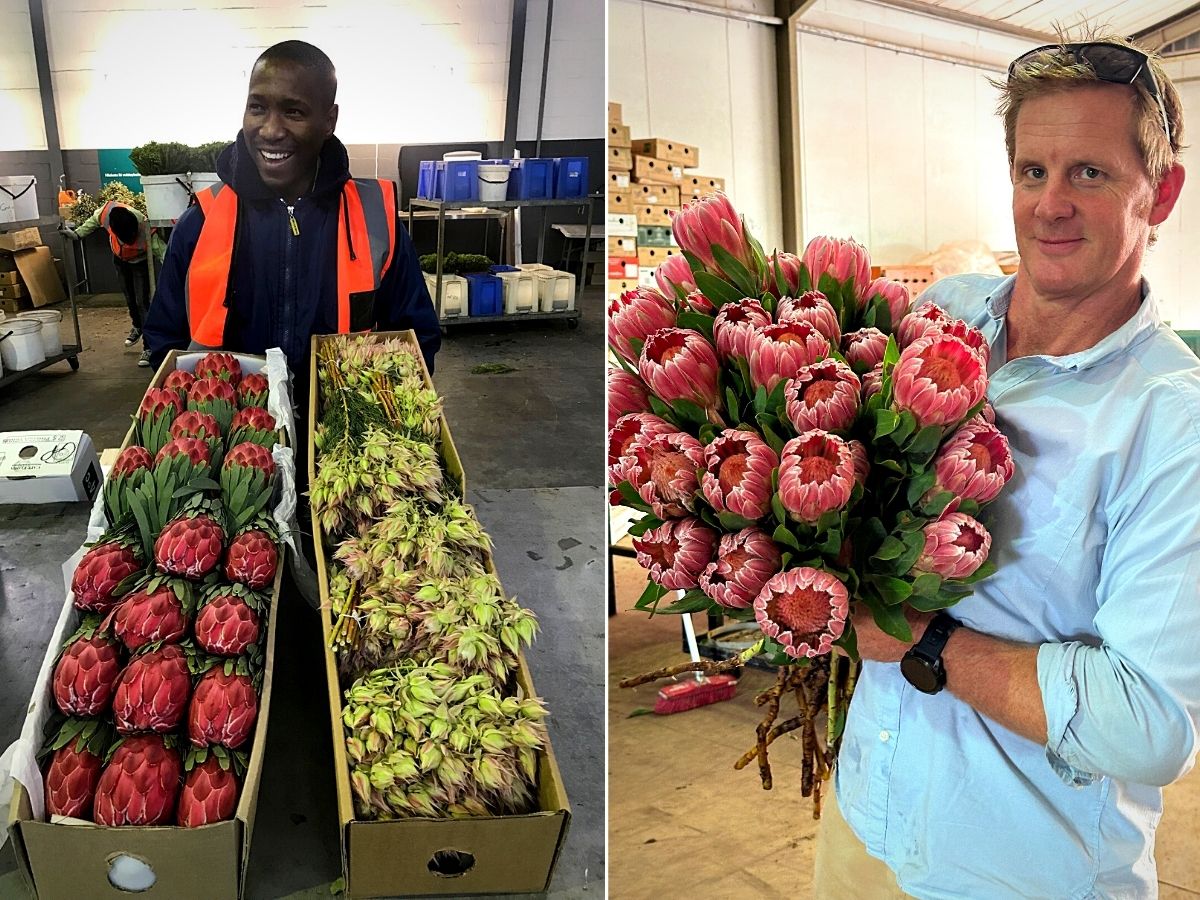
This is why in its flower business, Cape Mountain Flora understands the impact of different factors on this rich environment. So, the company tries to protect its protea and fynbos landscapes by participating in sustainable harvesting and ethical trading and observing the Code of Best Practice. The fynbos landscapes feature an overgrowth of evergreen, Mediterranean-type shrublands that occur on nutrient-poor soils derived from predominantly quartzitic sandstones and limestone.
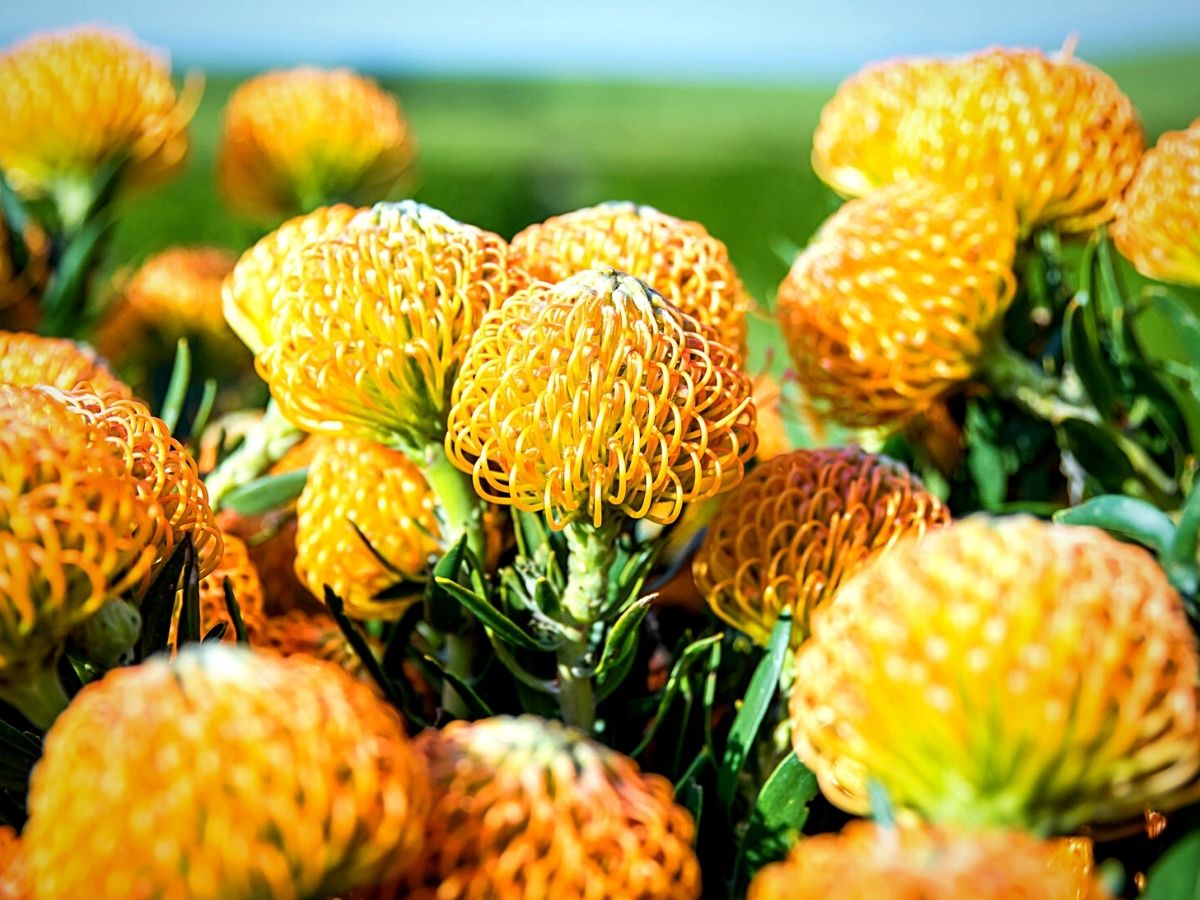
Each stem of the flowers that Cape Mountain Flora supplies, is hand-picked from either cultivated stock or renewable sources which are closely monitored to ensure that strict environmental and social standards are adhered to. The company also checks its carbon footprint, taking it into account, and therefore only makes use of passenger aircraft and sea freight forwarders to transport its products.
Plus, all its products are sourced from growers producing their flora naturally and in the open air with no artificial lighting or heating. This is beneficial to the ecology and environment as the plants reduce the amount of carbon dioxide and release oxygen as a by-product.
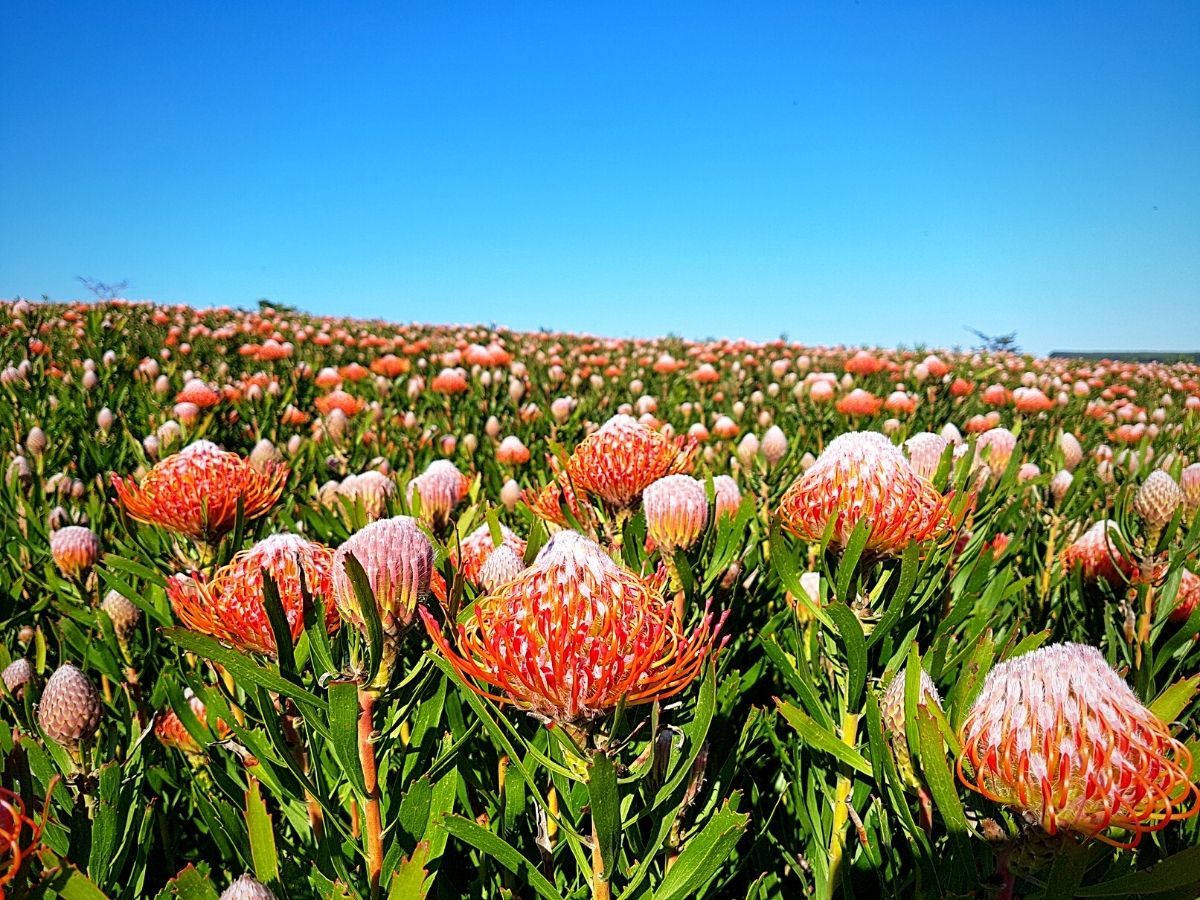
What’s more, due to proteas and fynbos farming being particularly labor-intensive, their cultivation processes provide jobs for thousands of farmworkers in the Western Cape region, hence by supporting the industry, the company contributes to the socio-economic welfare of those directly involved in the growing and harvesting of these remarkable floral products.
Photos courtesy of Cape Mountain Flora.

